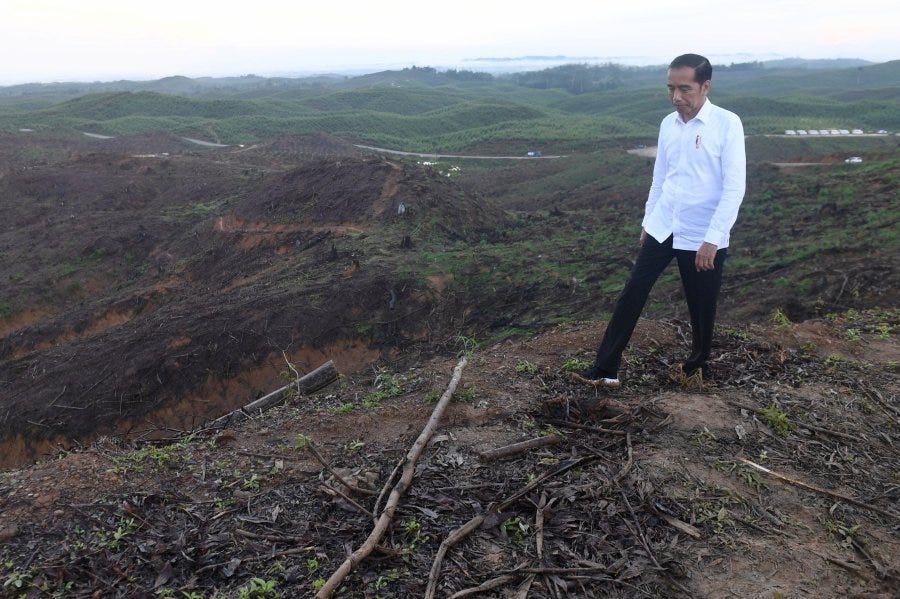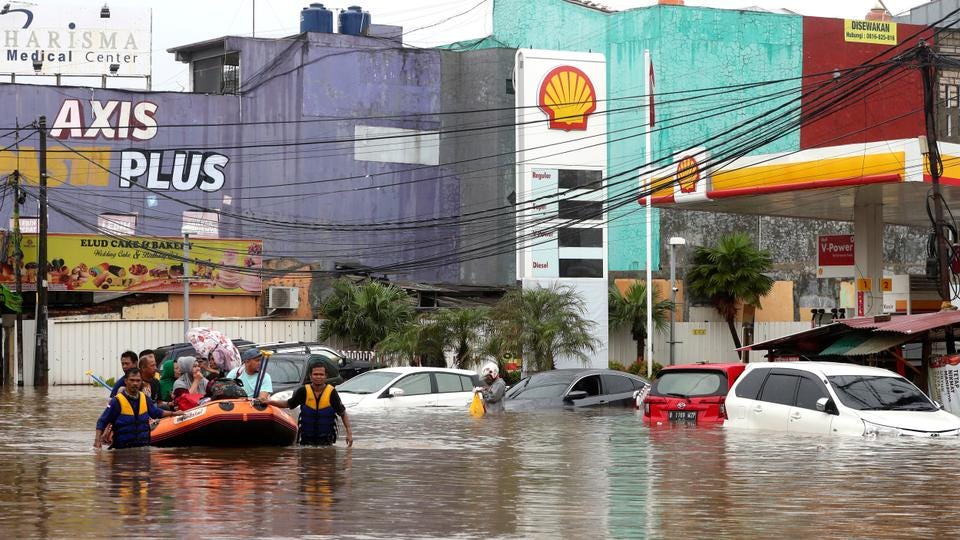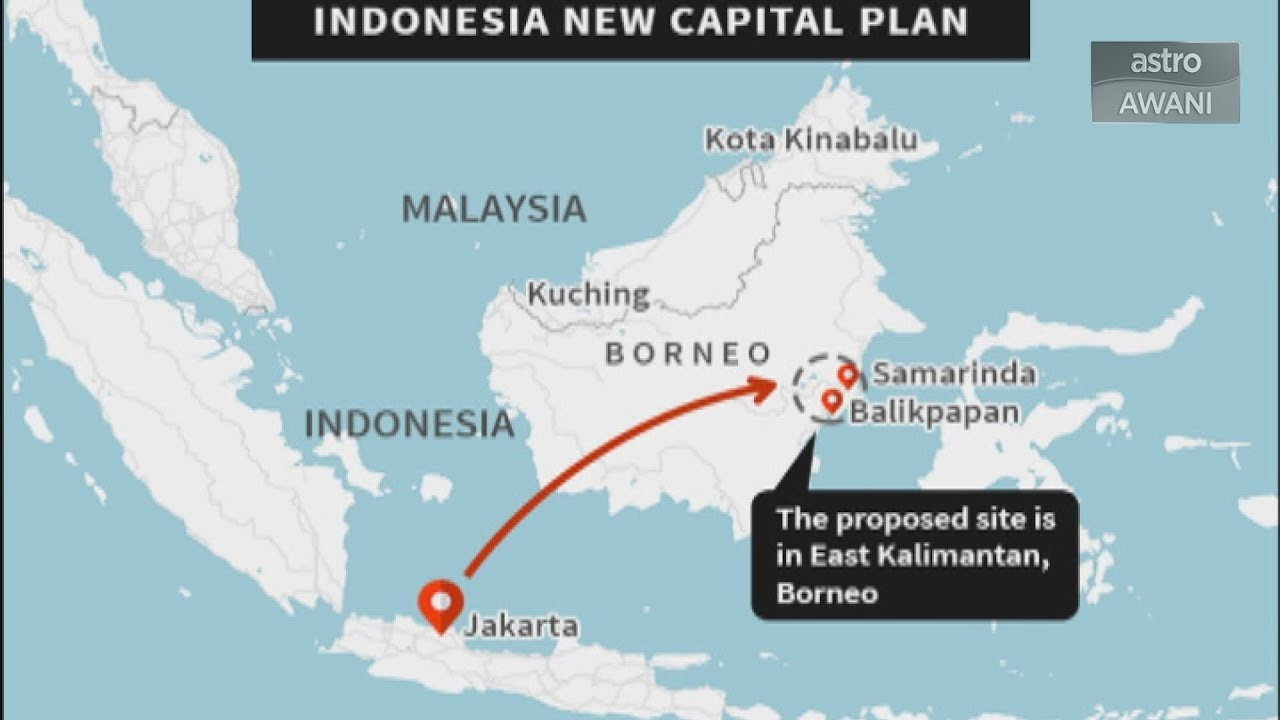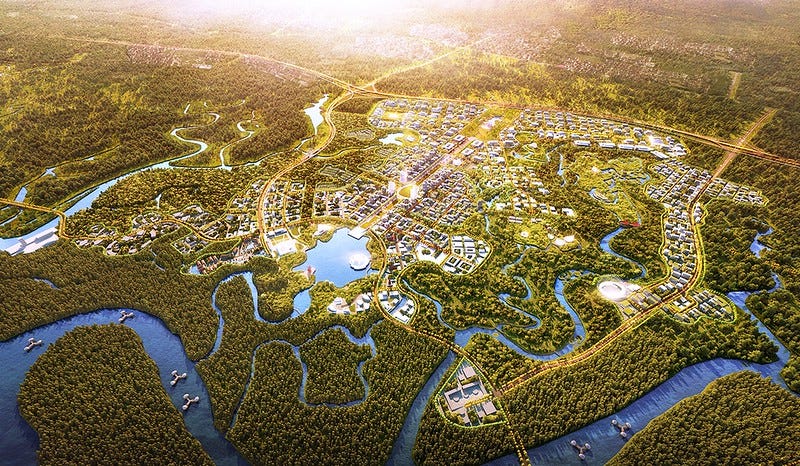The announcement last week by Indonesian President Joko Widodo that the country’s capital should be moved to a new location south of Balikpapan and Samarinda in East Kalimantan raises a considerable gamble. Jokowi, as the president is universally known, said he hopes to see the new capital completed before he leaves office in 2024.
It’s way too early to tell whether the move from Jakarta to East Kalimantan is just an idle dream or a long-shot actual attempt by Jokowi to leave a legacy in moving the government out of the line of fire from the hard-line Islam growing ever stronger on Java. The new capital has the potential to become a new symbol for the tolerant Islam Nusantara that the president has been promoting both domestically and internationally.
Nusantarian Islam embraces local cultures, traditions and wisdoms and a moderate and accommodating form of Islam practiced by most Indonesians before conservative Islam made its way from the Wahhabi vortices of Saudi Arabia. This has been Jokowi’s philosophy, the concept of Al-Wasatiyyah or middle way.
Certainly, few transfers of capital cities have paid off in the contemporary world, hence the move, if it materializes, is not without risk. Questions remain whether diplomatic agencies like the United Nations, ASEAN and embassies would make the move or remain in Jakarta. Other international agencies and multinational businesses have turned up their noses at joining new capitals. Most, for instance, chose to remain in Yangon, Myanmar, when the capital was moved to Naypyidaw and in Kuala Lumpur when the Malaysian capital was moved to Putra Jaya.
The most famous – or infamous – example is Brasilia, the government center which was moved 1,100 km from Rio de Janeiro in 1960 and which has been called a “warning to urban dreamers” because nearly 60 years later it remains a dreary, isolated area, its streets empty (above), ignored by most of Brazil despite its magnificent architecture, designed by the Brazilian Portuguese architect Oscar Niemeyer.
Indeed, Jokowi is not without criticism from various sections of Indonesian society. Sections within the Jakarta business establishment view the move as an opportunity for the oligarchy to make a windfall. Some local economists are critical of the move’s timing in view of Indonesia’s rising debt levels. The fact that 81 percent of the project is expected to be funded semi-privately is also of concern to some. Environmentalists are concerned the project will lead to more deforestation and forest fires on the ecologically important island of Borneo. Others claim Jokowi has another political agenda although.
But Jakarta is at a crisis stage. It has been badly affected by climate change, making sustainability very difficult in the long term. Water is expected to be completely depleted over the next 20 years as most households pump from underground bores. The city is sinking very quickly, with about 40 percent already under sea level. Flooding regularly occurs after frequent torrential rains.
Floods in Jakarta
Traffic is rated by planners to be the worst in all of Southeast Asia and the air is so polluted inhabitants can feel the grit between their teeth. Its rivers are so polluted it is possible to walk on them. There is little room for expansion as the population of greater Jakarta is now in excess of 30 million.
The selected area already has some infrastructure to support the new capital. There are two international airports, in Balikpapan and Samarinda, and a seaport in Balikpapan. The location is in the middle of Indonesia, free from floods and mudslides, not susceptible to volcanic activity or earthquakes. The estimated cost is projected at US$33 billion, 19 percent funded by the Indonesian government and 81 percent by state-private partnerships.
The first-stage plan for the yet-unnamed city would require 40,000 hectares for a new legislative complex, government buildings, shopping centers, utilities and housing for 1.5 million civil servants. The capital would be built along the lines of a smart forest city, incorporating large green open spaces with an extensive public transport system. The new capital would be expected to grow to 300,000 hectares over time.
The financial sector would remain in Jakarta, which would remain a business center with some continuing government services. The Presidential Palace would remain as a secondary residence.
With the current populations of Balikpapan, Samarinda and the surrounding areas just under 2 million, the additional 1.5 million would take the regional population up to approximately 3.5 million by 2024. This critical mass is expected to act as a stimulus to develop the area further. Kalimantan, with a population of just under 19 million in an area bigger than either Malaysia or Vietnam, has plenty of land to increase food production easily. This should be a windfall for local smallholders and SMEs. Processed foods would have to be produced locally as it’s expensive to ship consumer products from Jakarta.
There is some expectation that eventually there would be economic spillovers to neighboring Sulawesi. If the new capital is a successful stimulus, then the west coast of Sulawesi would be expected to start growing in tandem next generation. It’s going to take a long time for any spillover benefits for Malaysia’s Sabah and Sarawak, and Brunei due to Borneo’s relative remoteness. Although Sabah, Sarawak, and Brunei are linked by air, there are no roads to Sabah and the road to Sarawak and Brunei is 2,000 and 2,500 km respectively.
The centerpiece of the new capital is to be a pentagon-shaped monument representing the national ideology of Pancasila and the national motto Bhinneka Tunggal Ika (Unity in Diversity). This symbolism in Kalimantan, extremely diverse ethnically, with Muslims tending to follow a very liberal form of Islam, which might indicate that Jokowi is attempting to readjust Indonesian society.
The Islamic Defenders Front (FPI) and other conservative elements haven’t been able to make a bridgehead and thus have been unable to extend their influence into Kalimantan. In addition, Kalimantan is symbolically far away from the Northern Sumatran province of Aceh where Shariah law is strictly practiced, something adverse to liberal, accommodating and tolerant Indonesian culture.
There is a long way to go. The move won’t save Jakarta from further sinking and Jokowi has acknowledged this with the joint announcement of spending money to fix Jakarta’s problems. It’s still too early to tell whether Jokowi will get resistance or support to undertake this historic move. There are opponents to the very concept of Islam Nusantara and the symbolism of the new capital may just be too much for some. The parliamentary debate on the enabling Act is still ahead. Watch this space.
This article was published at Asia Sentinel 30th August 2019
Click on subscribe so articles can be directly emailed to your inbox:







